The urban art songs of 1930s can be considered the initial phase and a major part of Albanian classic music heritage . Urban song in the early 20th century could be divided into two styles: patriotic and the lyrical style. The lyrical style included a wide array of lullabies and other forms, as well as love songs. By the end of the 1930s, urban art songs had been incorporated into classical music, while the first recordings, however, of urban art song came as early as 1937, with the orchestral sounds of Tefta Tashko-Koço. A pivotal composer in modern Albanian classical music was Martin Gjoka, who composed several vocal and instrumental music which uses elements of urban art song and the folk melodies of the northern highlands. Gjoka's work in the early 1920s marks the beginning of professional Albanian classical music. Preng Jakova became well-known for operas like Scanderbeg and Mrika, which were influenced by traditional Italian opera, the belcanto style and Albanian folk song. Undoubtedly the most famous Albanian composer was Çesk Zadeja, known as the Father of Albanian classical music; he composed in many styles, from symphonies to ballets, beginning in 1956 with the Symphony Nr.1.
RTSH Symphonic Orchestra is the most prominent and important ensemble in Albania. It has 60 musicians and a season of 25 concerts with a wide range of styles from classic to pop and modern performances, many of them TV broadcasted and recorded as well. The orchestra has toured Europe and mostly Balkan area. The National Opera Theatre was created in 1957 and its orchestra is active even in the symphonic performances apart for the regular activity with the opera repertory. Both orchestras are formed totally by musicians educated in the Arts Academy of Tirana.
The establishment of chamber music ensembles and groups started at the beggining of '90s. Only few of them have been able to maintain a regular activity and the most persistent is “ New Sounds” string orchestra. It was founded in 2000 as part of a program supported by Swiss Foundation Pro Helvetia in Tirana. This ensemble has played a very significant role developing a modern style of musical performance, collaborating with renowned international artists, invited by many European Festivals in Sarajevo, Belgrade, Greece, etc. Its frequent conductors are George Chlitsios (GR), Malcolm Layfield, director of Goldberg Ensemble and Head of Strings at RNCM Manchester UK, Simon Camartin - Switzerland.
Tuesday, June 24, 2008
Subscribe to:
Post Comments (Atom)
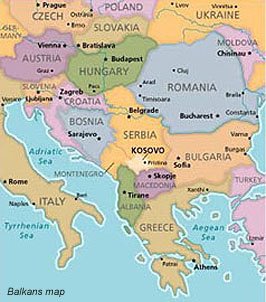

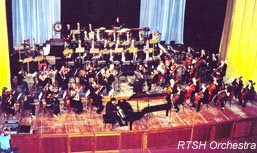
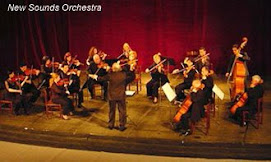
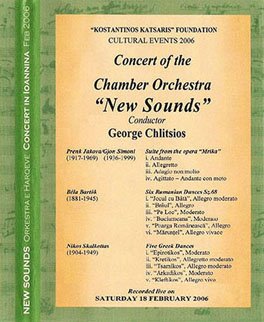
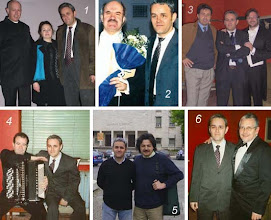

No comments:
Post a Comment